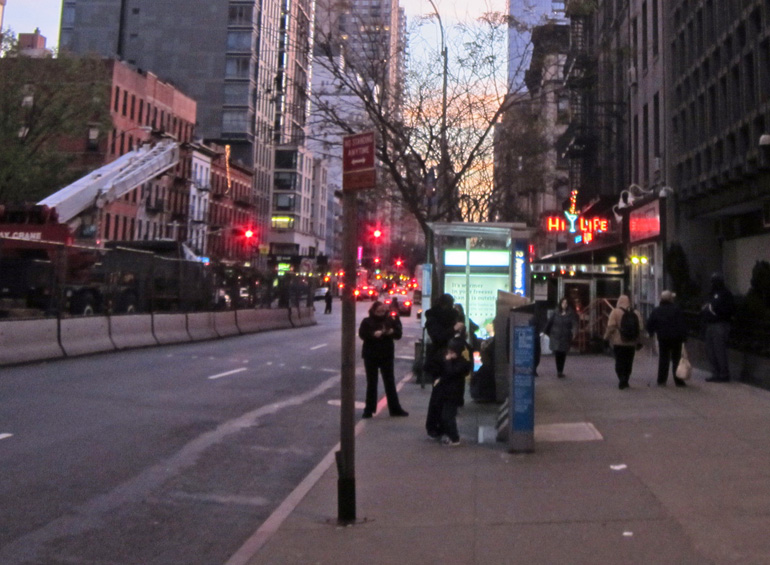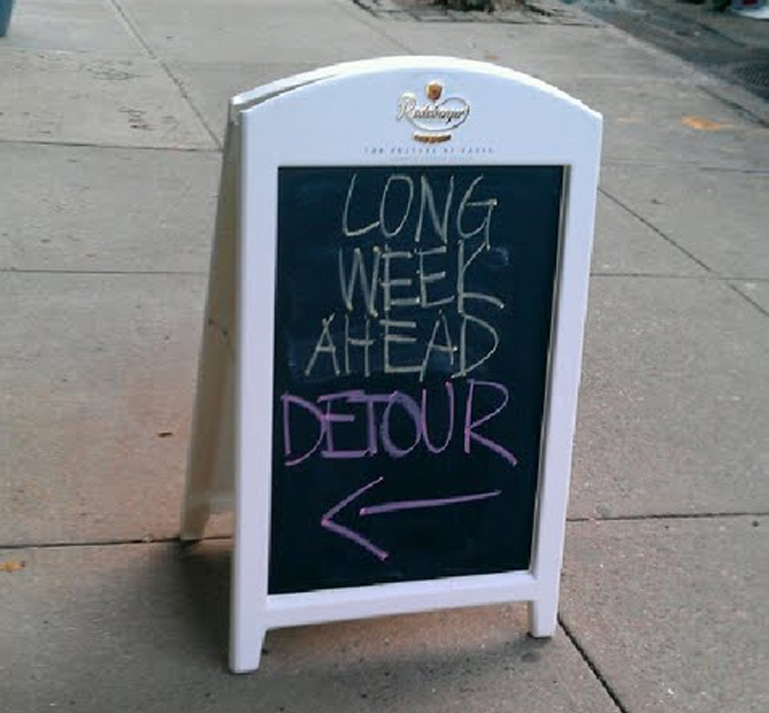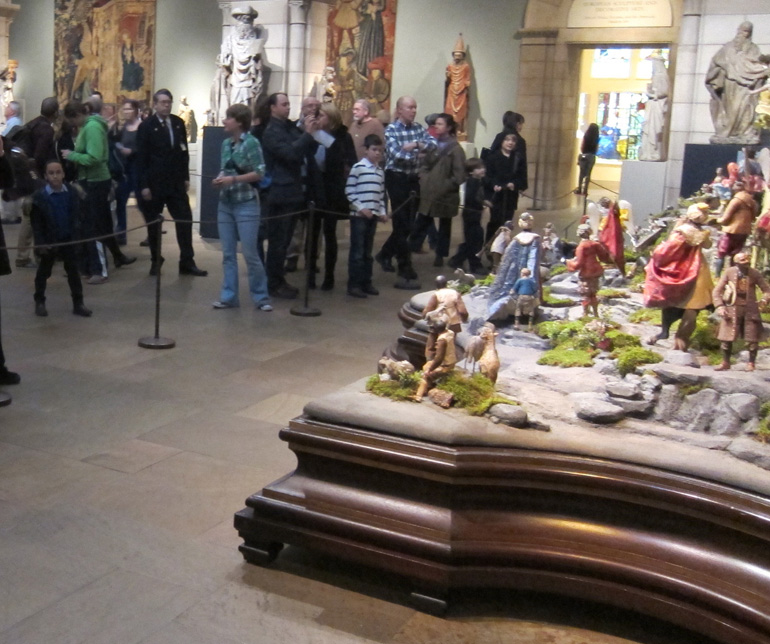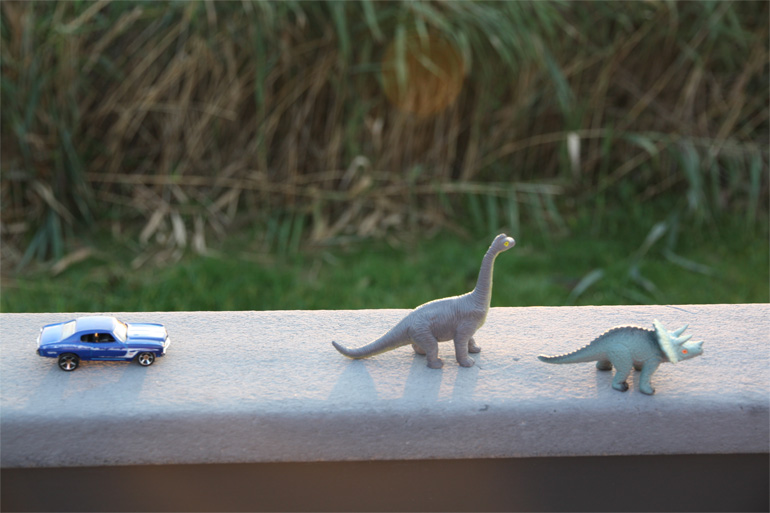
It seems that I’m going through one of my sporadic music blackouts. It’s not that I don’t want to listen to music; I simply can’t decide what to hear. It makes sense to me that I’m going through this now, because a number of things are up in the air (in the best sense) and music seems to be an unwanted distraction. Actual silence, however, can be oppressive, and this is where audiobooks come in handy. At least when I’m managing the household chores, I’m happy to listen to a story — preferably a story that I already know. Colm TóibÃn’s Brooklyn, read, unabridged, by Kirsten Potter, has seen me through hours of bed-making, magazine-sorting, book-culling, and other jobs. It came to an end yesterday afternoon. I came away from it with quite a different response to the ending.
The first time through, I felt that the story of Eilis Lacey was almost tragic. As the youngest child of a provincial Irish family, she comes of age without any propsects for job or marriage, and is shipped off to Brooklyn by an obliging priest who arranges for her immigration, her employment, and her housing. Once she’s there, he gets her into Brooklyn College, where she takes nights classes in accounting. The priest also keeps her busy at parish functions, which eventually include popular dances. The crowd at the dances is almost exclusively Irish, but Eilis catches the fancy of an Italian gate-crasher who swiftly falls deeply in love with her. Eilis’s own feelings are ambivalent at best; she likes Tony well enough, and is deeply gratified by his masculine companionship. But does she love him? All she knows is that she’s not ready to get married. Nevertheless, when, owing to a sudden death, Eilis has to return to Ireland for what’s to be a short visit, Tony persuades her to marry him in a civil ceremony that only the two of them will know about. All of this, so far, is charming, one of the sweetest, gentlest books ever written. Although the characters are sharply observed, and the limited horizons of the respectable Fifties are carefully delineated, Eilis’s adventure in America is a success, with no more than a normal allotment of unhappy hours.
It is when Eilis returns to Enniscorthy (yes, the author’s home town) that Brooklyn becomes uncomfortable. The discomfort — our discomfort — has two sources. On the surface, there is the difficulty of Eilis’s secret marriage, which she feels unable to share with her mother, or with any of her friends (who would tell their mothers, who would tell hers). To all appearances, she is an unattached young woman with a degree in accounting (a job is actually thrust upon her), and a young man whom she was happy to leave behind on account of his cloddish behavior turns out to be as taken with her as her secret husband. Eilis’s position is excruciatingly false; TóibÃn’s gift is to compress the unspoken tensions of a novel by Henry James within the limpid, accessible prose of the Brontës.
Beneath the surface, there is the problem of love itself, love being something that Eilis has seen little of in her life. Perhaps the word that I want isn’t “love,” but “generosity.” Eilis’s mother, sister, and brothers (her father has died before the novel) all love her dearly, of that there’s no doubt; but their love takes the form of an unexpressed, inexpressible commitment. Her two years in America have exposed her to more openhearted ways of life, especially, of course, Tony’s, and although her reaction is to back away, because such displays would signal depravity or worse back home, she becomes accustomed to them just the same. She is almost insulted, on her return visit, by her mother’s persistent refusal to inquire about or even refer to her experiences in faraway Brooklyn. We know what the old lady thinks of them, because of her understated disapproval of Eilis’s colorful American clothes. Eilis has not been home for three days before she realizes that her mother expects her to stay on forever.
Gradually, what with the job and the young man’s attentions and the general familiarity of Ireland, Eilis begins to entertain this prospect herself, thus turning the screw of her deceit. Just when she realizes that there is never going to be a good time to explain her situation to her mother and to her would-be boyfriend (they have kissed!), Eilis is saved — that’s how it seemed this time, not tragic at all — by a local harpy who intimates that she’s in the know about Tony and will share this knowledge with her neighbors if Eilis doesn’t skedaddle, which Eilis very promptly does. The End.
Well, not so fast. Eilis proceeds from her interview with the harpy to the Post Office, where she writes a number of letters, and then to her mother’s table, where she makes an abrupt confession. Mrs Lacey (never called so in the novel) contains her shock in a remarkable manner. She asks Eilis if she loves the man, and when Eilis says that she does, her mother replies that he must therefore be a good man. In this way, she gives her blessing to the marriage. But this blessing, although very sincere, is also terribly repressed.
“And tell me something: if you hadn’t married him, would you be going back?”
“I don’t know,” Eilis said.
“But you are getting on the train in the morning?” her mother said.
“I am, the train to Rosslare and then to Cork.”
“I’ll go down and get Joe Dempsey to collect you in the morning. I’ll ask him to come at eight so you’ll be in plenty of time for the train.” She stopped for a moment, and Eilis noticed a look of great weariness come over her. “And then I’m going to bed because I am tired and so I won’t see you in the morning. So I’ll say goodbye now.”
“It’s still early,” Eilis said.
“I’d rather say goodbye now and only once.” Her voice had grown determined.
Her mother came towards her, and, as Eilis stood up, she embraced her.”
“Eily, you’re not to cry. If you made a decision to marry someone, then he’d have to be very nice and kind and very special. I’d say he’s all that, is he?”
“He is, Mammy.”
“Well, that’s a match, then, because you’re all of those things as well. And I’ll miss you. But he must be missing you too.”
Eilis was waiting for her mother to say something else as her mother moved and stood in the doorway. Her mother simply looked at her, however, without saying anything.
“And you’ll write to me about him when you get back?” she asked eventually. “You’ll tell me all the news?”
“I’ll write to you about him as soon as I get back,” Eilis said.
“If I say any more, I’ll only cry. So I’ll go down to Dempsey’s and arrange the car for you,” her mother said as she walked out of the room in a way that was slow and dignified and deliberate.
How extravagantly important it is, not to cry! No wonder Eilis can’t be sure that she loves Tony: his declarative mode of love is forbidden. This time, however, I came away more confident that Eilis would find happiness in her Long Island doom.
Â
***
In the evening, I was cooking. I was making a puttanesca sauce (one of Kathleen’s favorites) for dinner, and I was cutting up the Thanksgiving turkey so that I could fit it into the refrigerator. (I’ve decided to brown the turkey parts in butter and then to braise them in a broth — ninety minutes in the oven — inspired to do so by a piece in the Times Magazine.) Have you ever cut up a turkey? A seventeen-pound turkey? It’s almost gruesome! The kitchen felt a veritable abbatoir! I remembered Julia Child’s trick for cutting butternut squash: with a cleaver and a mallet. That’s how I finally severed the drumsticks from the thighs. Next time, I’ll ask the butcher to do it.
All the while, I was weeping my head off. Couldn’t stop. I was listening to the old Karajan recording of Falstaff, and it was the music, not the comedy, that reduced me to tears. The music is sublimely funny — a true statement, but so inadequate! Just knowing that Verdi was in his seventies when he discovered how to be as fleet as a magician (not that he was ever a dawdler) is funny. And sublime. The music is occasionally comic (I can think of at least two raspberries), but it doesn’t sound like comic opera, not at all. It is very serious, the music. It is very serious about being funny. There are crashes and booms that could be lifted from Verdi’s darkest melodramas. There may be something about the lovely song that Nanetta and Fenton are always singing that announces, covertly, that no one is going to die in this opera, but I wouldn’t bet on it.
Then there is the genius of the sight gag: the merry wives of Windsor tip the hamper in which Falstaff cowers into the Thames. Wagner would make us hear the splash, but Verdi is scrupulous. His score does not hint at what we’ve just seen. Instead, it accompanies the climax with a purely musical response to the frenetic build-up that precedes the toss: as everyone laughs (music or not music?), the orchestra shimmers and smiles in tonic resolution.
And the dense, coruscating fugue at the end, Tutta è burla — THAT is all ye know on earth, and all ye need to know. Â




















